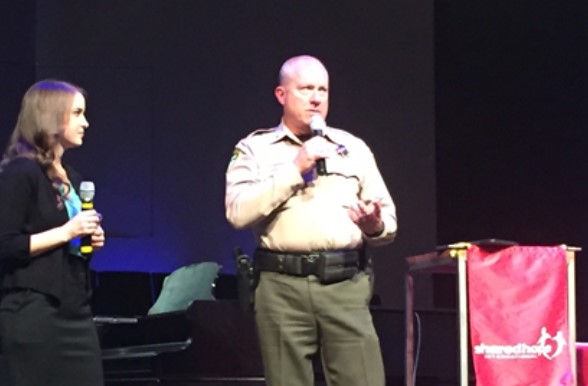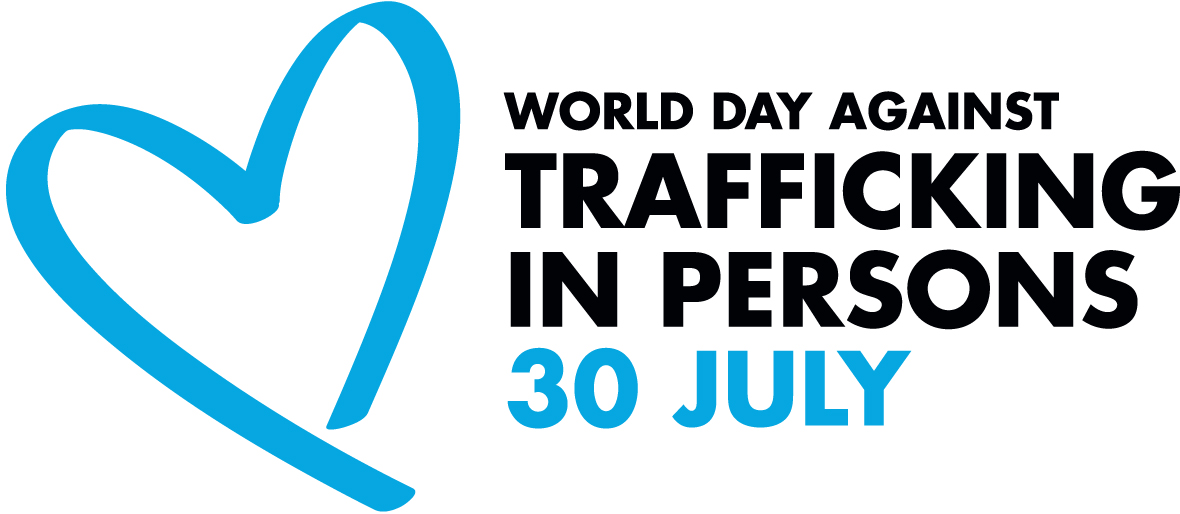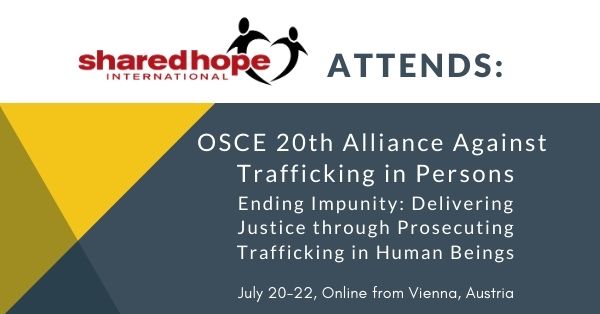Share this story with others to better understand what happens to children caught in child sex trafficking.
Lacy is one of the survivors featured in the Chosen film, who was thirteen years old at the time she was trafficked. Sharing today from an interview when she was nineteen years of age. Asking the question: How did your rescue occur?
 Lacy: Well, my rescue occurred because Linda Smith trained my probation officer when I was arrested. My probation officer was then able to “flag” my case and brought it to Linda’s attention, and they screened me while I was in juvenile detention. I met one of the Shared Hope advocates there, and she was a detention officer. There were a lot of people who would interview me with their different backgrounds or wherever they were in the system, but only one of them really stood out, and now I know she was trained by Shared Hope International. She really knew how to not intrude with questions and just kind of, just let me know that Shared Hope’s here for you kind of thing. She knew not to be pushing on me, ’cause as soon as you push on these girls, they’re gonna run.
Lacy: Well, my rescue occurred because Linda Smith trained my probation officer when I was arrested. My probation officer was then able to “flag” my case and brought it to Linda’s attention, and they screened me while I was in juvenile detention. I met one of the Shared Hope advocates there, and she was a detention officer. There were a lot of people who would interview me with their different backgrounds or wherever they were in the system, but only one of them really stood out, and now I know she was trained by Shared Hope International. She really knew how to not intrude with questions and just kind of, just let me know that Shared Hope’s here for you kind of thing. She knew not to be pushing on me, ’cause as soon as you push on these girls, they’re gonna run.
So it was more comfortable talking to her and I started opening up. I think what really got to me was, she had brought me a Snickers bar in the interview room. The rest of them just kind of jumped right in: your name, this, that and the other, and were kind of very formal about it. But this person was very nice, and not intrusive, and just respected that I didn’t really want to speak to anyone, you know.
I was just turning 15 when she came and I’d been trafficked then for two years. I had really started becoming hardened in that environment, just being abused that way.
Before I was trafficked, I was a really nice person. I was probably one of the nicest people you could meet. (laughing) And then after that time frame, you know, I just became a different person, just slowly transitioning. During that time while you’re being trafficked, you start forgetting your self-worth and things like that, so that reflects on who you are, and you just don’t care anymore because all your choices are taken away. And you don’t care about other people anymore.
I was very angry and became very aggressive and ya just don’t look at people like people anymore. You look at them like monsters, you know. There’s been times when I was arrested and one of the purchasers or clients was, you know told, “You can go,” by the police. And then you start looking at the people that are supposed to be helping you, like the police and our justice system, and they’re the enemies. You start seeing them that way because that’s what your traffickers are telling you in the first place, is “They’re not gonna help you. They’re not gonna care for you.” And then they reflect that by letting the buyers go and taking you to jail in handcuffs.
And I fell for it, you know, because it wasn’t like what you would think from a movie, and they have like this trench coat and they’re hiding in a shadows barely lit. No, buyers are just average people, average men, you know. They go to work, they come home, and then they run to the grocery store with car seats in the back, and they rent me for about 30 minutes before they go back home with the milk that the wife asked for. It makes me angry and it’s so gross, because they don’t see what they’re doing as wrong. And if they do see it, they don’t care and they’re just taking away a kids’ life like mine, just to bring themselves momentary happiness or whatever they get from it.
People ask me, “How did you get through this, being hurt and wounded and men doing things to you in the way that they did? How did you trust that God is still there for you?”
Actually I didn’t trust that God still loved me, you know, after those times. Sometimes I think God would try to reveal Himself to me, but I’d tell Him to go away. I didn’t want anything to do with God, because how did You let me, a good kid, go through this horrible stuff? You know, I read books to my brothers and sisters, and took them out on little play dates, and just different things like that. I volunteered in my community and went to youth group and youth retreats. I did my Ten Commandments. How could You let something like that happen to me?
There was a lot that I didn’t understand during that time, that God had to later reveal to me when I was ready, because I thought that He was quiet when all this was happening to me. Not that He was quiet, but that He was gone. I felt like He left me because of the things I did.
I blamed myself for everything. Like I put myself into this position by choosing to skip school to be with this guy. In my mind it seemed that I did it to myself. And I realize now, you know, thinking back on it, I was blaming myself for what my trafficker brainwashed me to believe. So, I suffered through a lot of anger, depression, a lot of guilt and I was just so angry. I hated everyone and I know hate is a very strong word, but at the time, that’s exactly how I felt, is I hated everybody. I didn’t know you, but I hated you.
I think Linda was the only person who got on a good side with me every time I saw her. I don’t know how she did it, but she did (laughing) Because I still did not like anyone. You could be the nicest person, but if you came up to me, especially if you were a man, I hated you. I didn’t want anything to do with you. I didn’t want you around me.
And there’s been plenty of times when I was in a home where they placed me at, a new staff member wasn’t aware of my predisposition towards men and would approach me, thinking I was just like all the other kids. And I would flip out and have anger issues and they would have to, you know, bring in staff members that I knew and trusted to calm me down because I didn’t like men anywhere near me. I freaked out if they were within an arm’s reach of me. I didn’t like them in the same hallways as me. I didn’t like them around at all.
And my anger started reflecting towards especially teachers and guidance counselors at the school and especially the police, because I was angry. All I could think was I should’ve been helped by them, but instead, I was the criminal. I was angry because in order for me to be protected, I had to be shipped across the country and I couldn’t see my family. I had no control over any of this, and you know, I was just really angry.
(Watch for Part 2 of Lacy’s story, how God began to reach through her anger)









